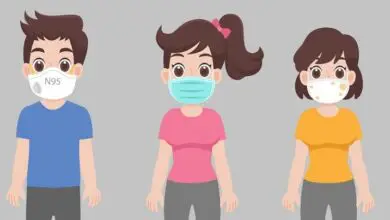The After Effects of COVID-19; We are Still At Risk

More than a million people have been affected by the virus outbreak. Some have recovered through it, whereas some are still fighting to get through. But, here’s a thing for those who recovered, the initial sickness is maybe just the very beginning, you may have to face a bit more of it.
Some of the patients have been complaining about breathlessness, tiredness and severe body ache even after months of recovering from it. Studies claim that the ones who recover suffer poor functioning of their heart, lungs, and liver. All of us are aware of the symptoms of COVID-19, but a lot of us don’t know what happens after recovery. According to experts, there have cases that the virus can cause permanent lung damage or fibrosis.
Lung Infection is the Major Concern
Experts are of the belief respiratory infection can cause coughing that lasts for long weeks and maybe sometimes for months. This can also turn up chronic wheezing or asthma. Since the chances of infection are quite severe, the recovery takes longer than usual and cause persistent breathing problem even if later your lungs are functioning normally. Patients who are suffering from Acute Respiratory Distress Syndrome (ARDS) are at risk of experiencing a severe lung injury that might as well require being treated in the ICU and have risks of long-term health issues.
Who is more likely to be at risk in the long run?
Not all those who recovered from COVID-19 have to face the consequences and risks for the long. The people who are most at risk are the 65-year-old people, people who have been living in nursing homes, and those who are suffering from some lung, heart, kidney, and liver disease. Apart from these people, who are at risk are the ones who have a weaker immune system and suffer obesity and diabetes.
Even after being treated and recovering, some patients who have suffered from ARDS might take longer to recover from pneumonia and might need oxygen. It also depends on how long you have suffered from the illness. Some of them might face illness and weakness and might need to take the help of vigorous rehabilitation. Patients who have lung failure may have to experience dysfunction in other organs like the heart, kidney, and brain. Patients who have mild symptoms will be recovering faster and might not require oxygen but can definitely have weakness and fatigue.
COVID-19 can affect the brain
Based on previously recorded data, it is stated that 36.4% of patients have faced neurological disorders. An article that was released earlier in the month of February has talked about the chances of the virus entering the olfactory neurons via an olfactory bulb in the brain.
Another theory says that COVID-19 can also affect the brain stem, which has control over our cardiorespiratory system. So, if you think that COVID-19 is solely related to lung diseases where the patients have difficulty breathing, then you are wrong. But still, there is not enough data to know about the consequences and how long the effects may last.
To conclude, COVID-19 can cause extreme illness, especially in people over 60 years and those who suffer from chronic diseases like diabetes and cardiovascular illnesses. According to the experts, the patients who are placed in the hospital intensive care unit can result in post-intensive care syndrome, which causes physical disabilities and cognitive deterioration. It is still unknown how long this will last and what are the later consequences.



